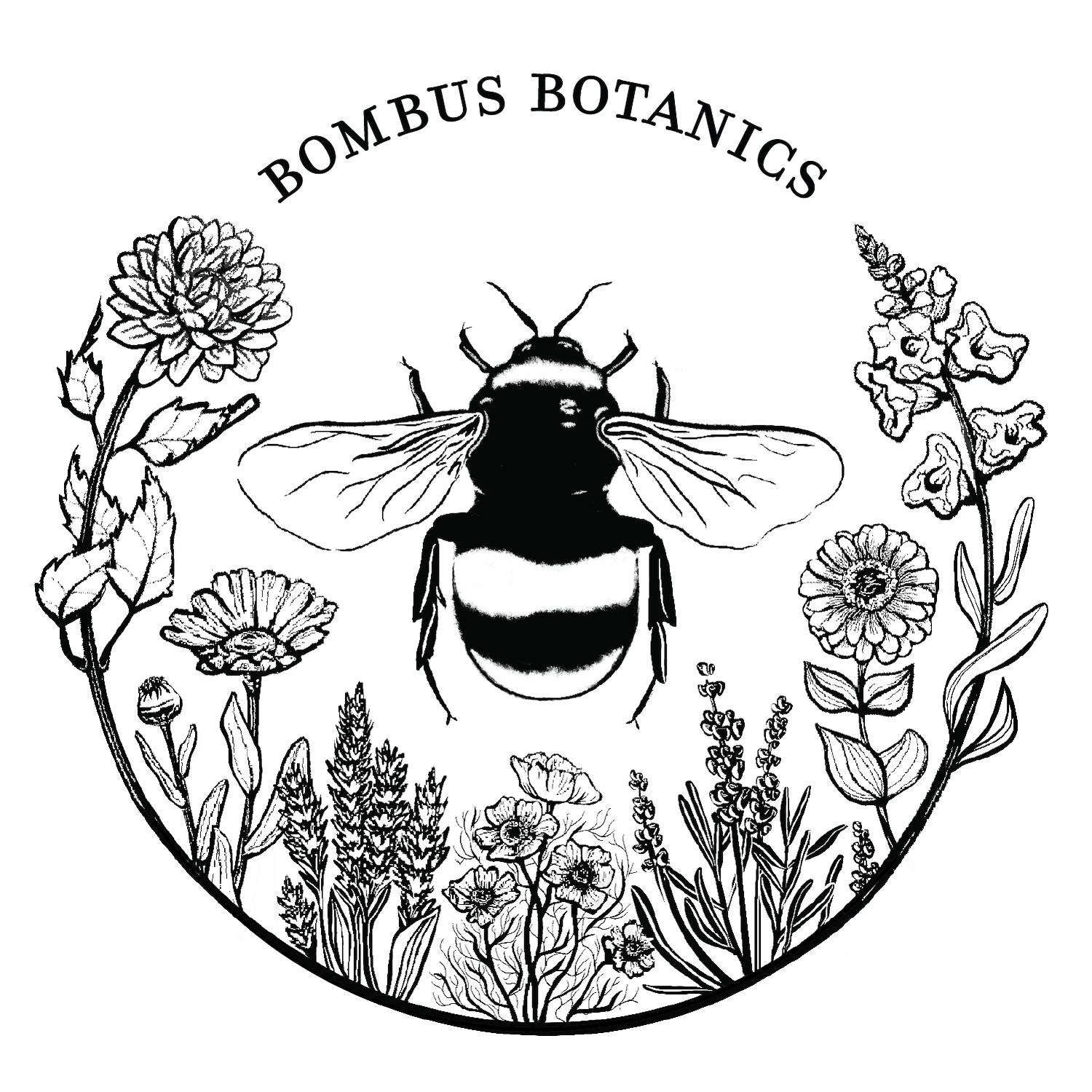About
BOMBUS BOTANICS
Bom·bus (noun) :
a genus of bees comprising the typical bumblebees
THE BOMBUS STORY
Hi! I'm Chris, owner and seed sower at Bombus Botanics. My farming endeavors unfurled out of a deep appreciation for the natural world - its vast beauty, incredible diversity, and increasing fragility - balanced by a recognition of the need to urgently invest in our soil and our communities.
A degree in Environmental Law focused my attention on our flawed agricultural system and its enormously detrimental impact on the health of our ecosystems. While policy change became one of my core motivating concerns, I also witnessed firsthand the power of community to transform our broken systems from the ground up. I soon departed NYC for Denver to slow my pace and dig into this new calling. My soil-centered work began with a handful of wonderful, food justice non-profits. For six seasons, I helped manage urban farms and pay-what-you-can farm stands, worked closely with chefs to get more local food on menus, and grew thousands of pounds of produce for our public school lunch programs.
Flowers naturally made their way into my fields and heart as I worked to create and protect more habitats and food sources for our struggling pollinators. 2025 finds my partner and I (+our rescue pup Rufio!) in our third farming year on our little patch of Earth in Bozeman, Montana. We’ve planted over 200 peonies, native perennial gardens, lots of trees and more than 30 edible and native shrubs on a once lifeless lawn. Designing for events and weddings is at the forefront of our work this season, as we share the beauty of locally grown flowers in a typically wasteful and chemical-heavy, import industry. We’re beyond grateful for the opportunity to steward this vibrant space, for all of your support, and for the chance to help to regenerate this land’s biodiversity, even in our small way.
FARMING & FLORISTRY PRACTICES
As growers in the semi-arid high desert of the West, my partner and I are constantly thinking about our places within, and impacts on, this rapidly changing environment. Adaptability is key--with water conservation, pollinator health, and soil regeneration serving as guiding principles as we continue to evolve our farming practices. Montana boasts 450 species of native bees, so we strive to avoid all inputs that could be harmful to them, fellow humans or the larger ecosystems above and below the soil. In the field, we refrain from using any herbicides or pesticides, focusing instead on plant resiliency through proper soil care.
Within the realm of floral design, I want my blooms to not only delight the senses but to also inspire our community to choose local/sustainably grown stems over imported flowers. The massive chemical footprint of the global floral industry cannot be overstated. More than 80% of all cut flowers in the U.S. are imported from South American farms where labor and chemical usage laws are either lax or non-existent. These toxic preservatives have had devastating health effects on a predominantly female workforce and eventually find their way into our local florists' hands, and finally our homes. In my designs, I steer clear of preservatives, plastic bouquet sleeves, floral foam, and imported or chemically-processed blooms. These fragrant bouquets are safe to handle, smell, and compost at the end of their vase life—the way flowers should always be enjoyed!



